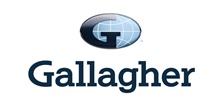
WASHINGTON – Oct. 25, 2018 – Every year the healthcare industry wastes an estimated $750 billion, and while employers overwhelmingly perceive this to be a problem, a sizable percentage (60%) are not actively managing the issue. This is among the findings of a survey to identify employers’ perceptions and actions related to waste in the healthcare system released by National Alliance of Healthcare Purchaser Coalitions (National Alliance) and Benfield, a part of the Gallagher Human Resources & Compensation Consulting Practice.
“While waste has long been identified as a key concern and cost contributor, employers are operating blind and need to look at a more disciplined approach to address top drivers that influence waste,” said National Alliance President and CEO Michael Thompson.
Survey highlights include:
- Employers perceive healthcare waste to be a problem, with majority (57%) indicating up to 25% of treatments their employees and dependents receive are wasteful
- Most employers don’t collect or analyze data to track waste (59%), and those that do rely on their vendors (34%)
- Employers perceive medical imaging (e.g. MRIs, X-rays) and medications to be the largest contributors to waste
- Most employers don’t report significant success in managing healthcare waste, their efforts have generally only been somewhat effective (e.g. 25% effective for medical imaging, 12% physician referrals)
- While more strategic/activated benefit designs are on respondents’ radar, most don’t have plans in place even though many indicate they would like to do so within the next five years
- Collecting and analyzing waste-related data changes the perceptions and actions of employers who take a more activated approach to managing healthcare either internally or through a vendor
- Activated employers are less likely to rate treatments as contributing significantly to waste, while being more likely to manage treatments to reduce waste, and report greater success in managing waste than employers that don’t collect data
- Employers are generally not familiar with Choosing Wisely (58%), a leading framework for defining unnecessary care
“The idea of reducing waste in the healthcare system can be overwhelming,” said Laura Rudder Huff, senior consultant for Benfield. “While employers ask themselves: ‘Where to start?’ this is an issue where even small steps matter. Employers can begin by collecting data to identify where the inefficiencies are in their workforce and community and use assets such as vendors and organizations like coalitions to realize market improvements.”
Recommended strategies for employers/purchasers to drive value and eliminate system waste include:
- Ask vendors to share information on healthcare waste and report on their efforts to address overuse (e.g. imaging tests)
- Consider value-based benefit design strategies that encourage reduced utilization of low value services (e.g. increasing copays, prior authorization, provider steerage)
- Move towards alternative payment mechanisms that do not reward waste or unnecessary services (e.g. bundled payments)
- Engage with the Choosing Wisely initiative and use the available provider and patient resources to make available to employees
Survey methodology
The online survey defined waste as procedures and treatments that are overused, have limited effectiveness, and/or are repetitive to tests and procedures that have already been conducted. The 126 survey participants included U.S. employers of all sizes and industries. Additional details can be found in a snapshot of the findings and the full survey results.
Employers learn more on Oct. 25 webinar
On Thursday, Oct. 25 from 1:00-2:00 pm ET National Alliance is hosting a webinar where Laura Huff, senior consultant at Benfield, and Michael Thompson, president & CEO for the National Alliance, will review the survey findings and offer recommendations for employers/purchaser. The webinar will also feature a reaction panel that includes Al Charbonneau, executive director at Rhode Island Business Group on Health, and Lauren Vela, senior director of Member Value for the Pacific Business Group on Health. Additional details and registration information can be found here.
National Alliance 23rd Annual Forum
Convening employers, policymakers, business coalition leaders and other healthcare stakeholders, the National Alliance will host its 23rd Annual Forum, November 12-14, 2018 at The Mayflower Hotel, Washington, DC. Registration information can be found here.
About Benfield-Gallagher
Benfield, a division of Gallagher Benefit Services, Inc., is a leading national market research, strategy and communications consulting firm focused on helping healthcare stakeholders prosper by improving health and healthcare value. To learn more, visit www.benfield.com.
About National Alliance of Healthcare Purchaser Coalitions
The National Alliance of Healthcare Purchaser Coalitions is a nonprofit network of business coalitions, representing more than 12,000 purchasers and 45 million Americans, spending more than $300 billion annually on healthcare. The National Alliance is dedicated to driving innovation, health, and value along with its coalition members through the collective action of public and private purchasers. To learn more, visit nationalalliancehealth.org or connect with us on Twitter or LinkedIn.
# # #
Note to editors: Accredited media are invited to participate on a webinar on Thursday, Oct. 25 from 1:00-2:00 pm ET for a review of the survey findings and recommendations, and to attend the 23rd Annual Forum, Nov. 12-14 in Washington.